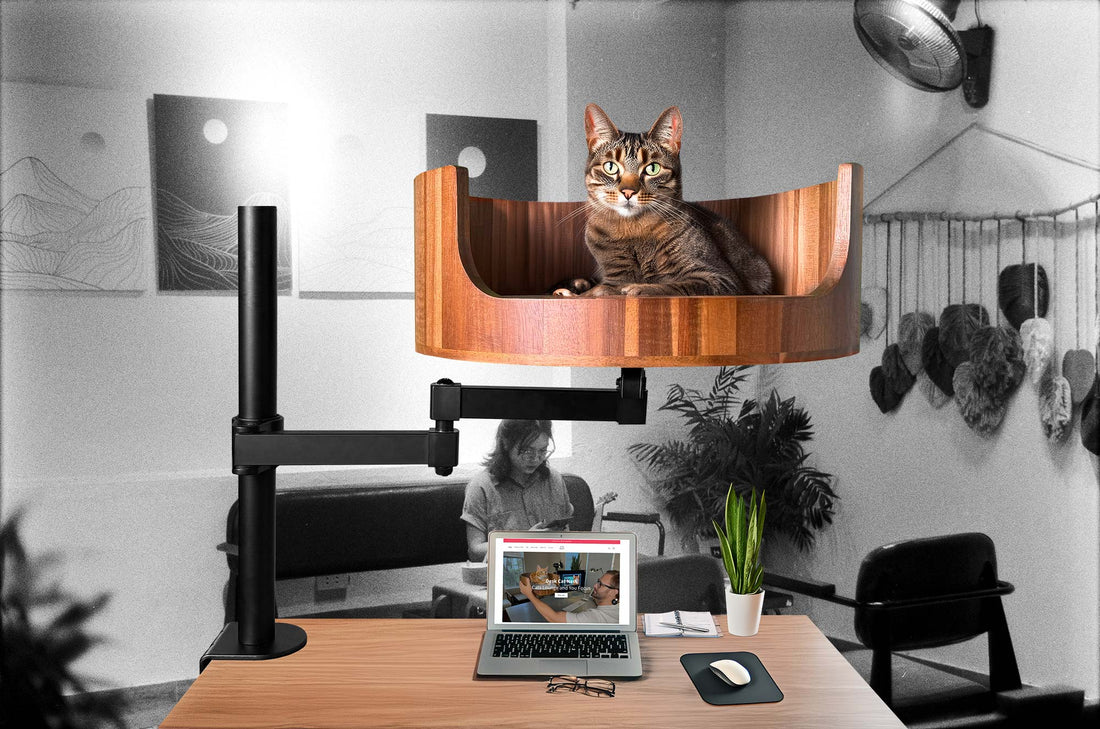
My Cat Keeps Sneezing: Causes and Solutions Explained
Share
Cat owners know how concerning it can be when their feline friend starts sneezing uncontrollably. While the occasional sneeze is usually not a cause for alarm, persistent sneezing can indicate a potential health issue that needs to be addressed. In this article, we will explore the common causes of sneezing in cats and provide practical solutions to help alleviate your cat's symptoms and improve their overall well-being.
From allergies and infections to foreign objects and dental issues, there are a variety of reasons why your cat may be sneezing. It is important to identify the underlying cause of your cat's sneezing in order to provide the appropriate treatment and ensure their comfort. We will discuss strategies for managing and preventing sneezing episodes, including tips for creating a cat-friendly environment and maintaining their health through proper grooming and nutrition. By understanding the causes of your cat's sneezing and implementing effective solutions, you can help your furry companion live a happy, healthy life free from unwanted symptoms.
1. Common causes of sneezing in cats include allergies, infections, and irritants in their environment.
2. Regular grooming and keeping your cat's living area clean can help reduce sneezing.
3. If sneezing persists, it's important to consult with a veterinarian to rule out any underlying health issues.
4. Allergies to dust, pollen, or certain foods may trigger sneezing in cats.
5. Providing a comfortable and stress-free environment for your cat can also help reduce sneezing episodes.
Common Causes of Cat Sneezing
There are several reasons why your cat may be sneezing frequently. One common cause is allergies, which can be triggered by pollen, dust, mold, or cigarette smoke. Another possibility is a respiratory infection or cold, which can lead to sneezing, coughing, and watery eyes. In some cases, foreign objects such as grass, dust, or hairballs can also irritate your cat's nasal passages, causing them to sneeze.
Health Conditions that May Lead to Sneezing
In some cases, chronic conditions such as feline herpes virus or feline calicivirus can cause sneezing in cats. These viral infections can result in upper respiratory symptoms, including sneezing, nasal discharge, and congestion. Other health issues such as dental problems or sinus infections may also lead to sneezing in cats. It's important to consult with your veterinarian to rule out any underlying health conditions.
Treatment Options for Cat Sneezing
Depending on the cause of your cat's sneezing, there are various treatment options available. If allergies are the culprit, your veterinarian may recommend antihistamines or corticosteroids to alleviate your cat's symptoms. For respiratory infections, antibiotics or antiviral medications may be prescribed. In cases where a foreign object is causing irritation, your vet may need to remove the object manually. It's crucial to follow your vet's treatment plan closely to ensure your cat recovers fully.
Preventive Measures to Reduce Cat Sneezing
There are steps you can take to minimize the chances of your cat sneezing. Keeping your home clean and free of dust and allergens can help reduce allergic reactions. Regular grooming to remove excess hair and prevent hairballs can also prevent irritation in your cat's nasal passages. Providing a balanced diet, regular exercise, and maintaining proper dental care can help boost your cat's immune system and overall health, reducing the risk of respiratory infections.
Desk Cat Nest FAQ
Will a Desk Cat Nest help reduce my cat's sneezing?
While a Desk Cat Nest is a cozy and comfortable space for your cat to relax, it may not directly address the root cause of your cat's sneezing. Sneezing in cats can be caused by a variety of factors, such as allergies, respiratory infections, or irritants in the environment. It's important to consult with a veterinarian to determine the underlying cause of your cat's sneezing and to develop an appropriate treatment plan.
Is the Desk Cat Nest easy to clean in case my cat has allergies?
Yes, the Desk Cat Nest is designed for easy cleaning. The removable cushions and washable covers make it simple to keep the nest clean and free of allergens that may be contributing to your cat's sneezing. Regularly cleaning the nest can help create a healthier and more comfortable environment for your cat.
Can the Desk Cat Nest accommodate cats of all sizes?
The Desk Cat Nest is designed to comfortably accommodate cats of various sizes. The spacious interior and soft cushions provide a cozy spot for your cat to rest, regardless of their size. However, if you have a particularly large or small cat, we recommend checking the dimensions of the nest to ensure it will be a suitable fit for your furry friend.
Will my cat enjoy using the Desk Cat Nest?
Many cats enjoy having a designated space to call their own, such as a cozy nest like this one. However, every cat is unique, and some may prefer different types of sleeping arrangements. To encourage your cat to use the Desk Cat Nest, try placing their favorite toys or bedding inside the nest and give them time to explore and get comfortable with their new space.
In conclusion, choosing a Desk Cat Bed can greatly help alleviate your cat's sneezing issue. By providing a comfortable and cozy bed that keeps your cat off the floor and away from potential allergens, you can reduce the frequency of sneezing episodes and improve your feline friend's overall health and well-being. Additionally, the elevated design of the Desk Cat Bed helps promote better airflow and circulation, further reducing the chances of irritation and sneezing. With its durable construction and stylish design, this cat bed is a valuable choice for any pet owner looking to provide a safe and comfortable sleeping space for their beloved furry companion. Invest in a Desk Cat Bed today and give your cat the restful sleep they deserve.



















































